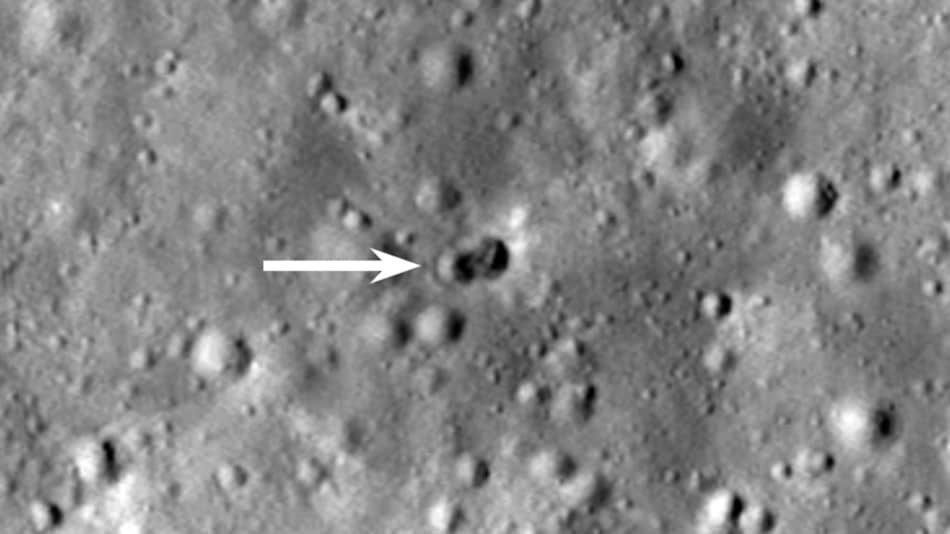NASA Lunar Reconnaissance Orbiter finds rocket impact site on Moon
The lunar surface has been impacted by an unidentified rocket that left two craters on its surface in an unusual and unprecedented phenomenon.
-

The double lunar crater created by the unknown rocket
Astronomers discovered last year the body of a rocket that was headed for a collision on the Moon's surface. The impact occurred on March 4, and the resulting crater was later discovered by NASA's Lunar Reconnaissance Orbiter (LRO).
Though only one rocket was reported to be heading for a lunar collision, the "crater" consists of two parts. The eastern crater is 18 meters in diameter and the western one is 16 meters in diameter.
The double crater was unexpected, and it may indicate that the rocket's body had large masses at each end. A spent rocket usually has mass concentrated at the motor end, while the rest of the rocket is mainly a mere empty fuel tank.
Read more: NASA, US collab to probe 'unidentified aerial phenomena'
Since the origin of the rocket body remains uncertain, the double nature of the crater may give insight into what the rocket was as well as its origin.
There has been no record of a rocket body impacting the Moon and creating double craters. The four Apollo SIV-B craters were somewhat irregular in outline, namely the Apollos 13, 14, 15, and 17. They were also substantially larger, measuring 35 meters in diameter. The maximum width of 29 meters of the double crater of the unidentified rocket was near that of the craters created by the Apollos.
The LRO is managed by NASA's Goddard Space Flight Center in Greenbelt, Maryland, for the Science Mission Directorate at the NASA headquarters in Washington.
The orbiter was launched on June 18, 2009. It has amassed tremendous amounts of data with its arsenal of seven powerful instruments, making an invaluable contribution to scientific research about the Moon.
NASA is returning to the Moon with commercial and international partners to expand human presence in space and bring back new knowledge and opportunities regarding the lunar surface and space travel.

 2 Min Read
2 Min Read








